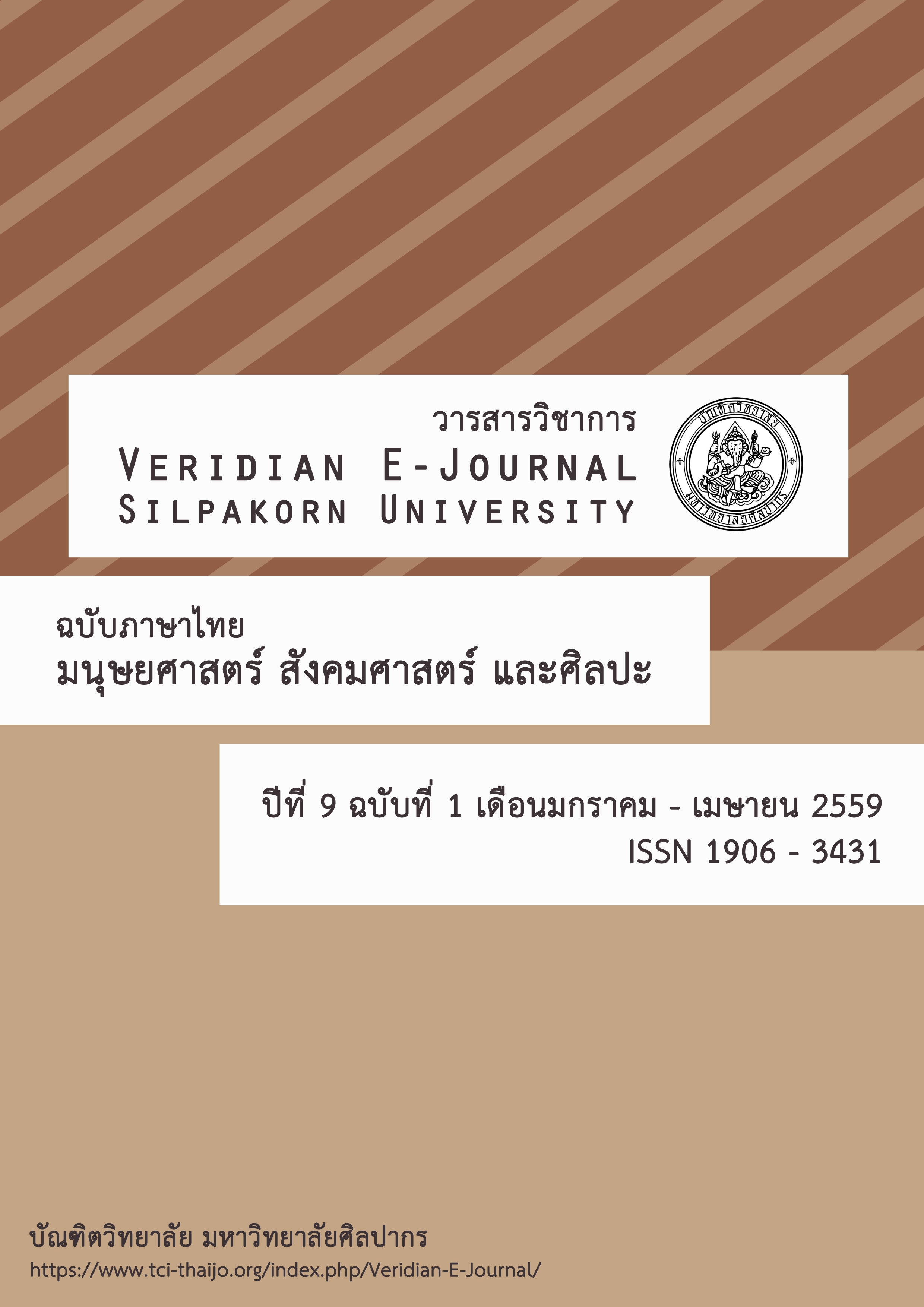การพัฒนาบัณฑิตให้เป็นมืออาชีพ: กรณีศึกษามหาวิทยาลัยศรีปทุม
Main Article Content
Abstract
บทคัดย่อ
ผู้บริหารมหาวิทยาลัยศรีปทุมมุ่งมั่นจัดการศึกษาตามแผนการพัฒนาการศึกษาระดับอุดม ศึกษาสำนักงานคณะกรรมการการอุดมศึกษาเพื่อให้อุดมศึกษาเป็นแหล่งองค์ความรู้และพัฒนากำลังคนระดับสูงที่มีคุณภาพเพื่อการพัฒนาชาติอย่างยั่งยืน สร้างสังคมการเรียนรู้ตลอดชีวิตตามแผนพัฒนาเศรษฐกิจและสังคมแห่งชาติ ฉบับที่ 11 (พ.ศ.2555-2559) บนพื้นฐานปรัชญาของเศรษฐกิจพอเพียง มีบทบาทสูงในสังคมประชาคมอาเซียนและมุ่งสู่คุณภาพอุดมศึกษาระดับนานาชาติ มหาวิทยาลัยศรีปทุมใช้กระบวนการสร้างบัณฑิตให้เป็นมืออาชีพด้วย 3 องค์ประกอบ คือ 1) หลักสูตร ทุกหลักสูตรมีการจัดการศึกษาเชิงบูรณาการกับการทำงาน (Work Integrated Learning: WIL) โดยใช้รูปแบบสหกิจศึกษา (Cooperative Education) และ การเพิ่มขึ้นของจำนวนนักศึกษาสหกิจศึกษา 2) การติดตามการจัดการสหกิจศึกษา จากนโยบายตามแผนยุทธศาสตร์มหาวิทยาลัยที่เน้นสร้างบัณฑิตให้เป็นนักปฏิบัติมืออาชีพทุกสาขาวิชา การรายงานผลการดำเนินงานสหกิจศึกษาจากผู้เกี่ยวข้องผ่านแบบฟอร์มในระบบออนไลน์ของมหาวิทยาลัย และ การติดตามการนิเทศของอาจารย์นิเทศตามมาตรฐาน และ 3) การประเมินผลความสำเร็จของการดำเนินงานสหกิจศึกษา 3 ด้าน คือ การได้งานทำของบัณทิต การมีเครือข่ายกับสถานประกอบการเพิ่มขึ้น และ มหาวิทยาลัยศรีปทุมได้รับการยอมรับในระดับชาติ ผลจากกระบวนการดังกล่าวมหาวิทยาลัยมีบัณฑิตมืออาชีพที่มีคุณภาพ มีความสามารถตรงตามความต้องการของตลาดงาน และสามารถทำงานได้ทันทีหลังสำเร็จการศึกษา
คำสำคัญ: บัณฑิตมืออาชีพ/สหกิจศึกษา/มหาวิทยาลัยศรีปทุม
Abstract
The execution of education management at Sripatum University is a dedicated commitment to respond to the higher education development plan of the Office of the Higher Education Commission: OHEC. The higher education development plan aims to present higher education as a source of knowledge and development for high quality manpower for sustainable national development as well as promoting a lifelong learning society in accordance with the Eleventh National Economic and Social Development Plan (2012-2016) which is based on the philosophy of sufficiency economy. As a result, high quality Thai manpower shall play a greater role in the ASEAN community’s integration. The higher education shall also aim towards international higher quality education.The process of developing professional graduates includes three components: 1) Curriculum: all curriculums are integrated with work experience (Work Integrated Learning: WIL) by focusing on the cooperative education format and the increase in the number of college students’ involvement in cooperative education. 2) Monitoring of the cooperative education management based on policies under the university’s strategic plan which stressed the creation of tertiary graduates as professional practitioners in all disciplines. The report on the implementation of cooperative education by related persons through the form on the university's online system, and supervised by the university monitoring supervisors/instructors. 3) Evaluation is the measurement of success in the implementation of cooperative education which includes three aspects, namely 1.number of graduates who obtain jobs, 2.increase in network with business establishments, and 3.the national recognition the University receives. A result of the said process has enabled Sripatum University to successfully develop higher quality professional graduates. These graduates are able to response to the changing demands of labor markets. They are also ready to work immediately after completed their degrees.
Keywords: Graduate Professional/Cooperative Education/Sripatum University

